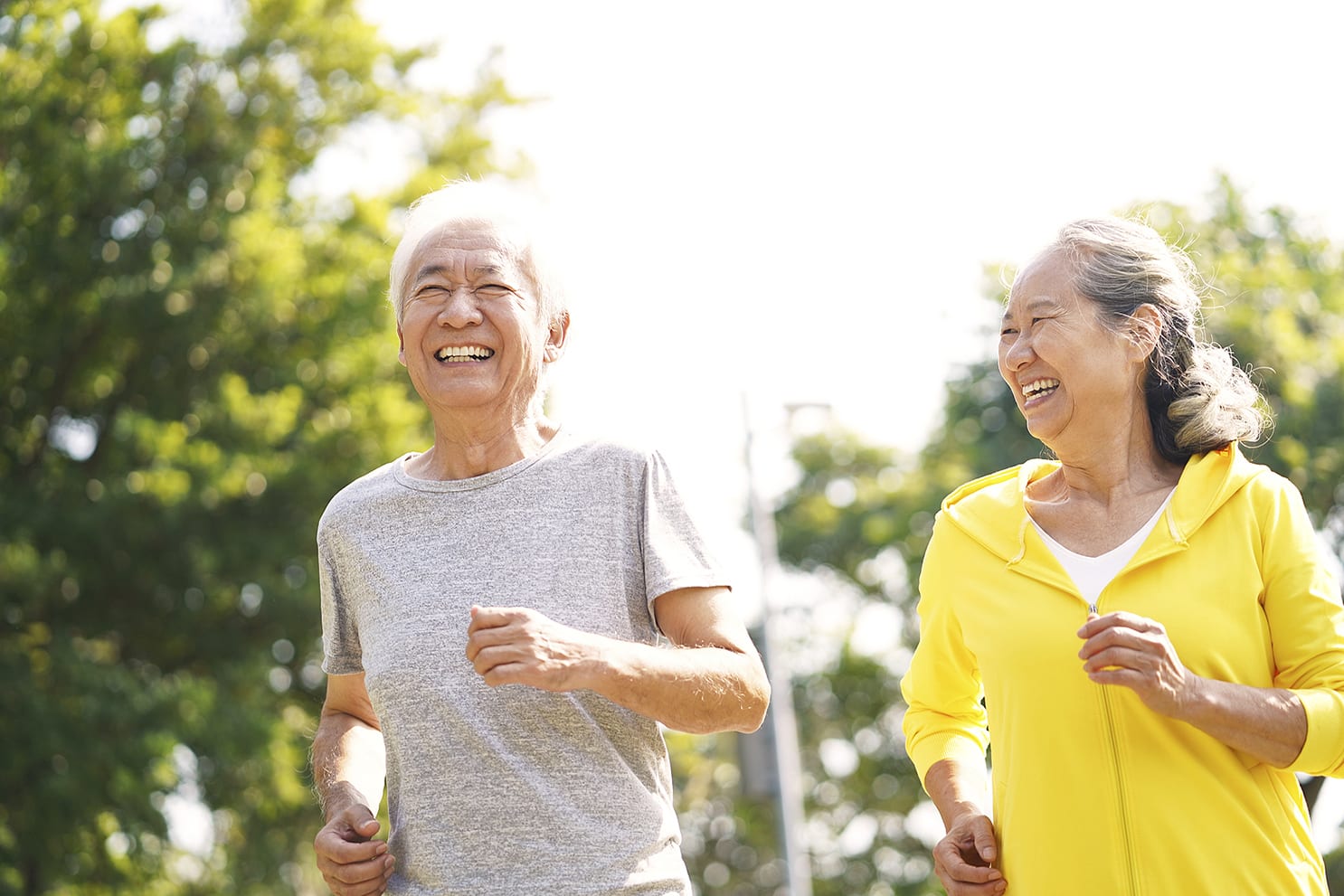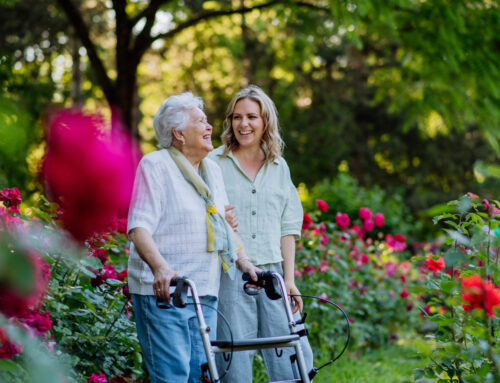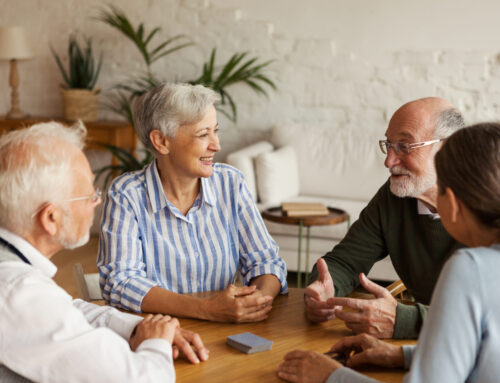Exercise is good for all of us. It can promote weight loss, build strong bones and muscles and support your heart to pump efficiently.
But exercise can also keep your emotional health in check.
If you’re looking for a way to improve your mood, minimize stress, anxiety and depression, or to even help you sleep better, a regular routine could be the answer.
Benefits of exercise
For each workout, the advantages are many but the two-for-one gain is hard to beat. In addition to the physical benefits, consider how exercise and your emotional health work together:
- Increased sense of well-being
Physical activity stimulates chemicals in the brain so you feel less anxious, more relaxed and ultimately happier, according to the Mayo Clinic. Exercise also tends to make you feel better about yourself and how you look, leading to improved self-esteem.
- You’ll have more energy
You’ll feel more energized when you exercise. A regular routine can help you build muscle strength and increase endurance. Oxygen and nutrients delivered to your tissues will boost your cardiovascular system, providing more energy.
- Improved memory
The endorphins released when exercising produce a feeling of calm and well-being but also help you concentrate and feel mentally sharp. They also stimulate new brain cell growth and may slow down age-related decline.
- Take advantage of the social aspect
Having trouble motivating yourself to exercise? Join others in a walking or running group, take a dance class or join a team for a group sport. Not only will you benefit from the exercise, but the social advantages as well.
- You’ll sleep better
Exercise can help you sleep better as activities during the day promote good sleep at night. Exercise early in the day unless it’s incorporated as part of your bedtime routine, such as yoga or other stretching movements.
- Build up your resistance
Exercise can build up your resilience and help you cope in a healthy way – a much better response in dealing with stress than medications or other negative behaviors. It can also help boost your immune system.
Exercise and your emotional health
The following summary outlines how exercise may interact and impact your emotional health:
- Exercise and depression
Research has discovered that exercise may be as effective as an antidepressant medication when treating mild to moderate depression. It promotes neural growth, reduced inflammation and feelings of calm. Exercise releases endorphins which make you feel good. It’s also a distraction that can help break the cycle of negative thoughts.
Exercise: Running 15 minutes a day or walking for one hour was found to reduce the risk of major depression by 26%. But all movement helps.
- Exercise and anxiety
Exercise is also an anti-anxiety treatment. You’ll find relief from tension and stress as well as a boost in energy. The release of endorphins also enhances feelings of well-being and calm.
Exercise: Any activity works but focus on the specific movements you’re doing. Pay attention to the physical sensations you feel when you’re exercising. This is a great way to interrupt continual worrying or anxious moments that often create a negative loop in our thinking.
- Exercise and stress
You feel stress in your body, typically tension in your neck and shoulders, often resulting in pain or headaches. You may also experience a tightened chest, insomnia, heartburn or a stomachache. These feelings alone can lead to even more stress.
Exercise: A great way to break through the stress cycle is physical activity, which can actually help you relax and relieve the tension in your body. And when your body feels more relaxed, your mind will follow.
Creating an exercise routine can be easier than you think
Try exercising on most days and before long it will become a habit. You can then add time, additional exercises or start mixing up different routines.
You don’t have to go to the extreme as moderate levels of exercise work well. If you’re not sure what that means, strive for these results when working out:
- Heavier breathing but not out of breath. You could still talk but not sing a song.
- Your body should feel warmer, but not overheated.
Obstacles to exercise
Be forewarned that you’ll find many obstacles and excuses, such as:
- Feeling exhausted: When you’re tired, exercising may be the last activity you want to do, but it will actually reduce fatigue and increase your energy.
- Feeling overwhelmed: When you’re already feeling stressed, adding another activity can seem like too much. But make it a priority and you’ll find ways to fit it in.
- Feeling hopeless: You may feel that you’re too old to start exercising or be upset with yourself that you didn’t start earlier. But it’s never too late. The important thing is just to take that first step.
Life at Tapestry Senior Living communities
Like many older adults, you may find it harder to access a gym or exercise equipment or to motivate yourself to get moving. But one of the great benefits of senior living is the boost they provide with an on-site fitness center. And you’ll have fun as the other residents will help keep you motivated. You’ll soon enjoy the benefits of exercise and improved physical and emotional health.
If you’re interested in all the options community life can offer, we invite you to consider one of our Tapestry Senior Living communities, where you’ll find:
- An active and engaged community who supports each resident to live life to the fullest
- Eating well and staying in shape is easy with our chef-inspired meals and fitness center
- A wide choice of activities to challenge your mind – or just to have fun
- Meeting and making new friends naturally at our many activities and social events
- And much more!
We understand that choosing the right community is an important decision. If you would like more information, we invite you to download our complimentary guide which contains helpful information for families considering senior living, Should You Stay or Should You Go?
If you have any questions or would like to schedule a personal tour, please contact one of our advisors at a community near you.







